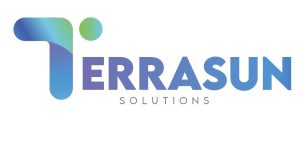Welcome to the Roof Company Orlando blog! Today, we will be exploring the laws surrounding door-to-door soliciting in Florida. Stay informed and discover what regulations you need to be aware of when it comes to solicitation at your doorstep. Let’s dive in!
Understanding Door-to-Door Soliciting Laws in Florida: A Guide for Roof Company Orlando
Understanding Door-to-Door Soliciting Laws in Florida: A Guide for Roof Company Orlando
Door-to-door soliciting is a common practice for businesses, including roofing companies, to reach potential customers. However, it is important for the Roof Company Orlando to understand and comply with the laws regarding door-to-door solicitation in Florida.
In Florida, there are specific regulations in place that govern door-to-door solicitation. These laws are designed to protect consumers from scams and deceptive practices while allowing legitimate businesses to operate.
One important law to be aware of is the Florida Door-to-Door Sales Act. This law requires certain disclosures to be made by sellers engaging in door-to-door sales. Sellers must provide a written contract that outlines the buyer’s right to cancel the agreement within three days. This cooling-off period allows consumers to reconsider their purchase without penalty.
Additionally, Roof Company Orlando should be aware of local ordinances that may further regulate door-to-door solicitation. Some cities may require solicitors to obtain permits or licenses before conducting door-to-door sales. It is essential to research and comply with any local regulations that apply to the business.
To avoid legal issues and maintain a positive reputation, Roof Company Orlando should ensure that their sales practices are transparent and honest. This includes clearly identifying themselves as representatives of the company, providing accurate information about their services, and not engaging in any deceptive or misleading tactics.
By understanding and following the door-to-door solicitation laws in Florida, the Roof Company Orlando can protect their customers and operate their business in a lawful and ethical manner.
Frequent Questions
What are the specific regulations regarding door-to-door soliciting for roof companies in Orlando, Florida?
In Orlando, Florida, there are specific regulations regarding door-to-door soliciting for roof companies. According to the City of Orlando Code of Ordinances, Section 11B.26, door-to-door solicitation is allowed between the hours of 9:00 AM and 6:30 PM from Monday to Saturday. Solicitors are required to visibly display their identification card issued by the City of Orlando, which includes their name and photograph. They must also provide a written quote or estimate for the services offered and disclose any cancellation policy. Additionally, solicitors are prohibited from entering properties where «No Solicitation» signs are displayed or if the resident has requested them to leave. It is important for roof companies to ensure compliance with these regulations when engaging in door-to-door solicitation activities in Orlando, Florida.
Are there any permits or licenses required for door-to-door soliciting in the roofing industry in Orlando?
In Orlando, door-to-door soliciting in the roofing industry may require certain permits and licenses. While I am not a legal expert, I can provide some general guidelines.
Firstly, it is crucial to research and abide by the local laws and regulations related to door-to-door solicitation in Orlando. These regulations vary by city, so it is important to check with the local government or licensing department.
In some cases, a general business license may be required for soliciting door-to-door. This license verifies that your business is registered and compliant with local laws. Additionally, certain specialized licenses may be necessary in the roofing industry, depending on the type of work being offered. For example, if you are providing contracting services, a contractor’s license may be required.
It is also essential to consider any specific homeowner association rules or restrictions that may exist in certain neighborhoods. Some communities may have their own regulations regarding door-to-door solicitation.
To ensure compliance, it is recommended to consult with an attorney or contact the appropriate local government office to inquire about any necessary permits or licenses for door-to-door soliciting in the roofing industry in Orlando.
Can you provide information on any recent changes or updates to the laws governing door-to-door soliciting for roofing companies in Florida?
As of my knowledge, there have been no recent changes or updates to the laws governing door-to-door soliciting specifically for roofing companies in Florida. However, it’s important to note that door-to-door soliciting is generally regulated by local ordinances and zoning regulations rather than state laws.
Roofing companies operating in Orlando, Florida, should familiarize themselves with the local regulations and obtain any necessary permits or licenses required for door-to-door solicitation. Compliance with privacy laws, including the Telephone Consumer Protection Act (TCPA) and the National Do Not Call Registry, is also crucial for any telemarketing or cold-calling activities.
Additionally, it’s always advisable for businesses to maintain ethical practices and respect the privacy and preferences of homeowners. Building a positive reputation through referrals, online reviews, and quality work can often be more effective in attracting customers than door-to-door solicitation.
In conclusion, door-to-door soliciting in Florida is regulated by various laws and regulations to protect consumers and mitigate potential scams. As a Roof Company Orlando, it is important to be aware of these laws to ensure compliance and maintain a positive reputation within the community. By understanding the requirements for obtaining solicitation permits and respecting residential privacy rights, businesses can engage in ethical and lawful practices that contribute to a safer and more trustworthy environment for both consumers and service providers.
